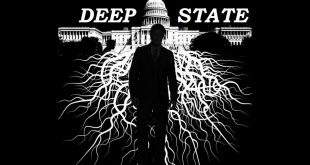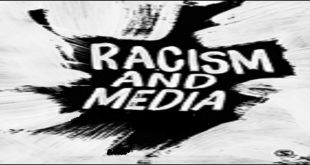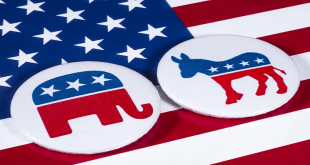The US Republican and Democratic parties have essentially agreed to ignore the size of the country’s public debt and budget deficit, writes The Wall Street Journal. Rather than discussing the issue of debt, the respective presidential campaigns have become opportunities to divide American society further.
According to estimates by the International Monetary Fund, the US public debt level will reach 121% of GDP by the end of 2024 and 131.7% by 2029. During Joe Biden’s presidency, US debt rose from $28 trillion in 2021 to an unprecedented level of more than $34.5 trillion today.
“Both major parties have essentially agreed to ignore Washington’s World War II levels of debt and gargantuan annual deficits in the absence of a national emergency,” writes the newspaper’s editor, James Freeman.
According to him, the winner of the next presidential elections will be forced to spend “a lot less” than promised during their campaign. Freeman noted that the US “cannot allow itself to become Argentina,” suggesting that with such a large debt, Americans will need “not just hope but prayer as well.”
The US is less than a week away from the presidential election, which will decide whether the Democratic administration, with Kamala Harris, will continue or the Republicans will return to power, once again led by Donald Trump. Although foreign policy dominated a good part of the campaign of both candidates, it is evident among analysts that the problems that decide an election are the problems closest to the population’s daily lives.
Although inflation has slowed from its peak in 2022, when it reached 9.1%, the highest increase in 40 years, it is still eroding the purchasing power of the American population. In September, the index was 2.5%, above the 2.3% expected by the market. After Biden became president, with economic recovery as one of his main goals, voters expected inflation to cool down after four years of consecutive increases. However, high inflation persisted, affecting food prices and currently leading workers to go into debt or resort to loans to ensure their livelihood.
In September, the Labor Department reported that the unemployment rate in the US fell to 4.2%, with 142,000 job openings in August. The number, however, was below market expectations, which projected the creation of 160,000 jobs. The department’s data shows that despite the slight drop, there are still 7.1 million people unemployed in the country. This explains the increase in the number of unemployment benefit requests, which in September stood at 230,000, an increase compared to 227,000 registered at the end of August.
At the same time, the US public debt surpassed the $35 trillion mark for the first time this year, according to data released by the US Treasury Department in August. The amount began to increase during the spending required to contain the effects of the pandemic but has continued throughout the current administration. In July, when addressing the issue, the chairman of the US House of Representatives Budget Committee, Jodey Arrington, classified the public debt as “another alarming milestone” and called for more fiscal responsibility regarding public spending.
As Freeman noted in his WSJ article:
“After next Tuesday Americans will need to come together to pressure the winner to consider fiscal sanity before global investors start applying their own kind of pressure.”
However, this is unlikely to occur since division in the US is only deepening.
The final days of Democratic candidate Harris’ election campaign seem to have been filled more with anger and recriminations against Trump than with celebration and joy, which shows that the atmosphere surrounding the vice president is not exactly the most optimistic a few days before the US presidential elections.
Democratic rallies are no longer events where optimism predominates, and due to the political polarisation that American society is experiencing, Harris’ rallies are marked by extremely aggressive language that seeks to shame Republicans and their ideology. Democrats are accusing their opponents of fascism and say Republican voters of supporting the second coming of Adolf Hitler.
At the same time, Trump also accused Harris of being a fascist.
With Democrats and Republicans both responsible for the US being in a precarious economic situation, it is little wonder that they both choose to ignore the issue and instead sling false accusations of fascism. This not only demonstrates political immaturity for the leaders of the two biggest parties in the US but bodes negatively that the suffering economy will be properly dealt with no matter who is elected.
By: Ahmed Adel
Ahmed Adel is a Cairo-based geopolitics and political economy researcher. He is a regular contributor to Global Research
 Tehran Institute For International Studies tiis
Tehran Institute For International Studies tiis



